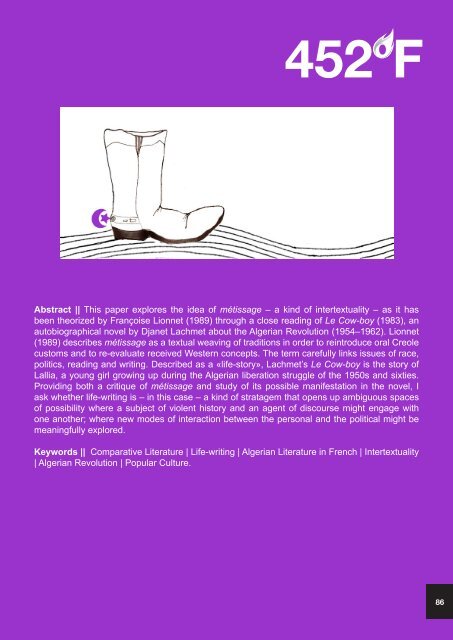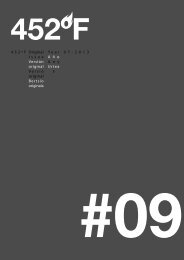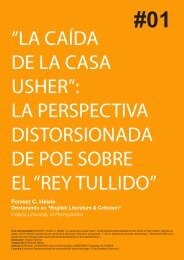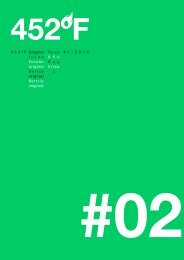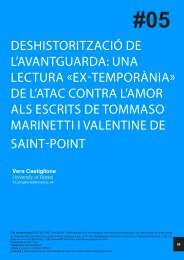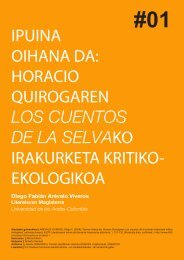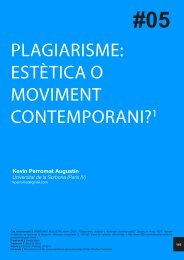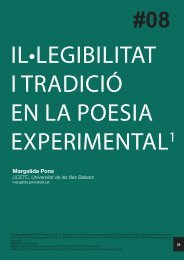03 - 452ºF
03 - 452ºF
03 - 452ºF
Create successful ePaper yourself
Turn your PDF publications into a flip-book with our unique Google optimized e-Paper software.
<strong>452ºF</strong><br />
Abstract || This paper explores the idea of métissage – a kind of intertextuality – as it has<br />
been theorized by Françoise Lionnet (1989) through a close reading of Le Cow-boy (1983), an<br />
autobiographical novel by Djanet Lachmet about the Algerian Revolution (1954–1962). Lionnet<br />
(1989) describes métissage as a textual weaving of traditions in order to reintroduce oral Creole<br />
customs and to re-evaluate received Western concepts. The term carefully links issues of race,<br />
politics, reading and writing. Described as a «life-story», Lachmet’s Le Cow-boy is the story of<br />
Lallia, a young girl growing up during the Algerian liberation struggle of the 1950s and sixties.<br />
Providing both a critique of métissage and study of its possible manifestation in the novel, I<br />
ask whether life-writing is – in this case – a kind of stratagem that opens up ambiguous spaces<br />
of possibility where a subject of violent history and an agent of discourse might engage with<br />
one another; where new modes of interaction between the personal and the political might be<br />
meaningfully explored.<br />
Keywords || Comparative Literature | Life-writing | Algerian Literature in French | Intertextuality<br />
| Algerian Revolution | Popular Culture.<br />
86


